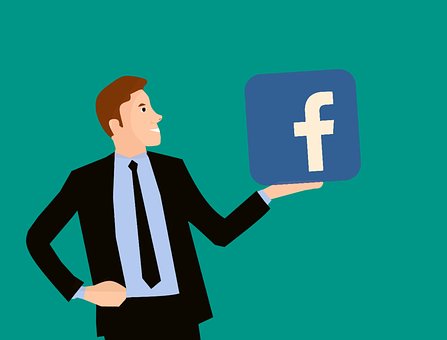Social medi
SOCIAL MEDIA WAS ABUZZ over a reported whistleblower who was about to identify herself publicly Sunday night on the network TV (CBS) newsmagazine, “60 Minutes,” targeting the demographically nearly-useless elderly population, but these are the people who actually use Facebook to show off and brag about their grandchildren. The appearance was in advance of her scheduled testimony before a Senate subcommittee on Monday morning concerning FB’s research into Instagram’s mental health effect on young users. FB owns Instagram, a photo-video social media platform, among others. The gist of the research found the platform to be “toxic” for the young, especially girls, whose body images suffered from it. (FB has been unable to unveil an ‘Instagram-4-Kidz,’ a commercial setback.)
The whistleblower’s name is Frances Haugen and she’s a former Product Manager on FB’s “Misinformation Team” (how scary is that title?!) who claims the social media network prioritizes “growth over safety” and is “tearing our societies apart.” If you think she sounds like she’s from the target demo for “60 Minutes” herself, you’d be mistaken. She’s 37. The Harvard M.B.A. left FB earlier this year, but not before purloining internal documents and memos that the Wall Street Journal had been chronicling in a series called, in a moment of uber-creativity, the “Facebook Files.” She claims FB also amplified the events of January 6th and that it is “causing ethnic violence around the world.”
More interestingly, perhaps, she showed documents that FB was defending a lawsuit from some shareholders, alleging the company’s £3.7 billion payment to the U.S. Federal Trade Commission to settle the Cambridge Analytica scandal was a pretext to protect Facebook’s controversial C.E.O., Mark Zuckerberg, from personal liability. Recall the C.A. scandal, a vast and ongoing FB data mining operation done in conjunction with now-bankrupt U.K. firm, C.A., back in the 2010s) and which was the subject of a 2019 documentary called “The Great Hack.” (The timeline is here.)
Naturally, FB was quick in its defense, if not apologies, of its wretched self. A memo was circulated company-wide over the weekend by the V.P. of Global Affairs (another horrid title!), Nick Clegg, which the hallowed New York Times spared some ink to print. The gist of the FB propaganda memo was that what people would be saying was “misleading.” (Isn’t everything?)
“We understand the [60 Minutes] piece is likely to assert that we contribute to polarization in the United States, and suggest that the extraordinary steps we took for the 2020 elections were realized too soon and contributed to the horrific events of January 6th in the Capitol,” Clegg whined, continuing, “Social media has had a big impact on society in recent years, and Facebook is often a place where much of this debate plays out.” (Brackets and emphasis mine.) Dig deeper here.
When Clegg was interviewed by Brian Stelter on a Sunday morning talk show, Stelter claimed he felt like he was talking with “a head of a tobacco company.” Clegg correctly took exception to this foolish analogy, calling it “profoundly false,” but at least FB was being called out. “I think it absolves people of asking themselves the harder questions about the historical, cultural, social, and economic reasons that have led to the politics we have in the U.S. today,” he stated in a hypocritical attempt to absolve his company from asking itself about its own callous and self-serving contributions to societal dysphoria.
On Monday (15:39 UTC), there was what may have been a chilling sign from God. Facebook and its sister companies Instagram, WhatsApp, and Oculus VR suffered an ongoing outage globally for six hours. Apparently, the digital signatures that authenticated its internet addresses had somehow been revoked, leaving DNS servers unable to route traffic to them. This not only affected users, but employees and management, too, since they all use the same domain. Investigative reporter and security guru, Brian Krebs, said in his blog that it had to have been from the inside as a result, but it wasn’t clear if it was a malicious act or just a screw-up. (Outside effects can be read about here and here, including where several domain registration companies erroneously put “Facebook-dot-com” up for sale.”)
Meanwhile, Zuckerberg’s wealth diminished by $7 billion in just a few hours. FB stock plummeted by around five percent, too, on an already horrendous day for the markets and tough year for the company. The outage has cost FB itself an estimated $60 million in revenue thus far.

